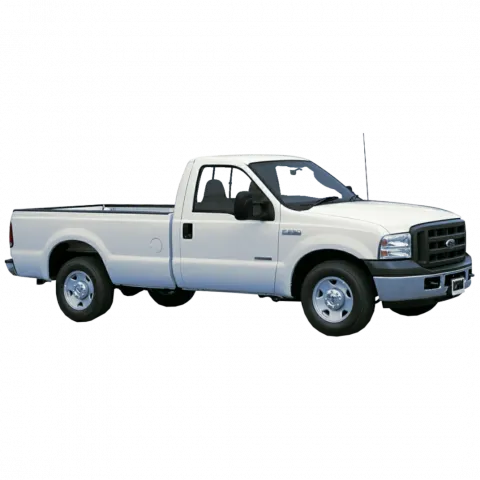Choosing the right Ford F-250 can be a daunting task, as the model has seen numerous changes over the years. While Ford's F-Series trucks have a reputation for toughness and reliability, some model years have had more issues than others. In this article, we'll explore which years and models of the Ford F-250 you might want to avoid and why.
1. 2005-2007 Ford F-250 Super Duty (6.0L Power Stroke Diesel): The 2005-2007 F-250 Super Duty with the 6.0L Power Stroke Diesel engine has a notorious reputation for reliability issues. Problems with the engine's EGR (Exhaust Gas Recirculation) system, oil cooler, and head gaskets plagued many of these trucks. Frequent breakdowns and expensive repairs make these years a risky choice for used truck buyers.
2. 2008-2010 Ford F-250 Super Duty (6.4L Power Stroke Diesel): While Ford addressed some of the issues from the previous generation, the 2008-2010 F-250 Super Duty with the 6.4L Power Stroke Diesel engine had its share of problems as well. Owners reported issues with the emissions control system, turbochargers, and the Diesel Particulate Filter (DPF). High repair costs and concerns about reliability make these years less desirable.
3. 2011-2016 Ford F-250 Super Duty (6.7L Power Stroke Diesel): The 6.7L Power Stroke Diesel engine was a significant improvement over previous generations. However, the 2011-2016 F-250 Super Duty models with this engine had some transmission issues, particularly with the TorqShift 6-speed automatic transmission. Some owners reported problems with the transmission slipping or shifting harshly.
4. 2017-2019 Ford F-250 Super Duty (6.7L Power Stroke Diesel): The 6.7L Power Stroke Diesel engine continued in these model years, and while it's generally more reliable than earlier versions, some owners experienced issues with the turbochargers and emissions systems. The main concern here is the potential for expensive repairs and the cost of diesel maintenance.
5. 2020-Present Ford F-250 Super Duty: The latest generation of the F-250 Super Duty is generally well-regarded for its performance and capabilities. However, newer models may come with a higher price tag. Be cautious of early production models as they may have teething issues that Ford subsequently addresses in later production runs.
6. Older Models: If you're considering a vintage F-250, keep in mind that older trucks may have rust and corrosion issues, as well as outdated safety features. It's essential to thoroughly inspect any older model for signs of wear and tear.
In conclusion, while there have been some problematic years and models in the Ford F-250's history, it's crucial to note that not all trucks within those years will experience the same issues. Proper maintenance and a thorough inspection before purchase can help mitigate potential problems. Additionally, some owners have had positive experiences with the models listed above, so individual circumstances and usage play a significant role in a truck's long-term reliability. Always do your research and consider consulting with a trusted mechanic before buying a used Ford F-250 to ensure it meets your needs and expectations.
